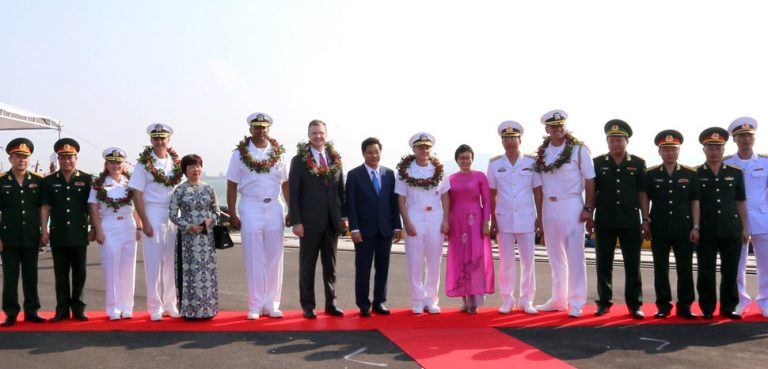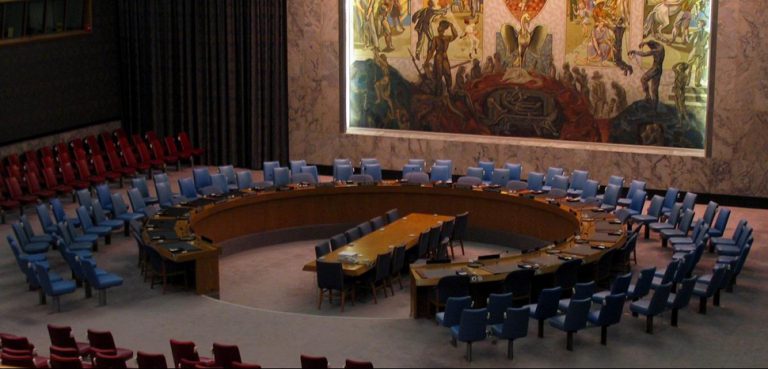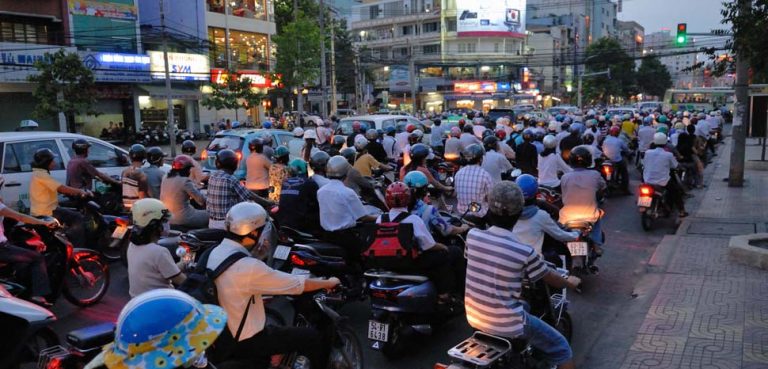In spite of Donald Trump’s denial of the US electorate’s decision to elect Joe Biden, a recent visit to Hanoi from U.S. National Security Advisor Robert O’Brien, coupled with the naming of Antony Blinken as the designated secretary of state in the new administration, sends a clear signal to China and to Association of Southeast Asian Nations (ASEAN) of America’s ongoing commitment to the region.
While a Biden White House will have plenty on its domestic agenda in addressing a planned national response to surging COVID-19 infections across the U.S., there’s no chance that the president-elect’s team will be hitting the reset button on US-China relations. This makes Vietnam gleeful because it is regarded as America’s closest ally in Southeast Asia. In view of this fact, Washington takes every opportunity it can to champion Hanoi and improve its international standing.
There are several positives in US-Vietnam relations during the 25th anniversary of normalized trade relations between the two former enemies. Bilateral ties are moving ahead, with the United States now Vietnam’s second-largest trading partner, behind only China. Even during the COVID-19 crisis, trade increased by $26 billion over the first half of the year.
Former Deputy Secretary of State, Mr. Blinken, has previously spoken about Vietnam. “Vietnam’s transformation – like that of so many nations – has been supported and even accelerated by an international, rules-based order dedicated to the progress of every nation,” claims the veteran foreign policy official.
Mr. Blinken served as a key policy architect during the Obama administration’s rebalance to Asia. The primary reason for Washington’s reconciliation with Vietnam is that Hanoi represents ASEAN’s strongest opponent of Chinese expansionism in the contested South China Sea. In a conversation with Walter Russell Mead at the Hudson Institute on July 9, 2020, the diplomat stated, “there is a growing consensus across parties that China poses a series of new challenges and that the status quo was really not sustainable.”
Although many National Assembly members applaud the Trump administration’s disruptive stance towards China, Hanoi has remained cautiously neutral in sending any congratulatory statements to the president-elect.
In the recent meeting held in Hanoi between Pham Binh Minh, deputy prime minister and U.S. National Security Advisor, Robert O’Brien, Vietnam expressed interest in deepening bilateral ties by military-to-military information sharing as well as obtaining additional U.S. Coast Guard equipment to better protect maritime areas.
“The fundamental interests of the United States will not change when Joe Biden is sworn in as the 46th President,” claims Carl Thayer, Emeritus Professor at the University of New South Wales and director of Thayer Consultancy.
Thayer believes that any agreements reached during O’Brien’s visit might include increased cooperation between the countries’ respective coast guards, as well as equipment sales, all in a bid to counter China’s overreach in maritime claims in the South China Sea dispute.
The prevailing Washington views are that Biden’s White House will establish a new tone, one that puts value on the importance of multilateralism. This would be in sharp contrast to the Trump administration’s open contempt for alliances. Without exception, Biden will expand support for the Quad and Quad Plus concepts, enlarging military coordination exercises beyond Australia, India and Japan to other major nations, including Vietnam.
“Vietnam would make an excellent addition to a China-focused Quad Plus. Broadening Quad participation to include a Southeast Asian country would weaken Beijing’s narrative that the Quad is simply a group of extra regional major powers attempting to ‘contain’ Chinese power,” claims, Derek Grossman, a senior defense analyst in a RAND commentary.
However, there remain divisions in Hanoi about whether the leadership would agree to go along with engagement in a Quad Plus role.
Nevertheless, as maritime powers in the Indo–Pacific, Australia, India, Japan, and the United States of America, the so-called the Quadrilateral (Quad) members, share interests and responsibility in maintaining maritime security through addressing these complicated challenges. The idea of the Indo–Pacific or Free and Open Indo–Pacific (FOIP) does include maritime security cooperation.
Cooperation in security and defense ties between Vietnam and the U.S., especially in maritime security, has grown stronger over the past several years. This has been highlighted by historic port calls between the U.S. aircraft carrier USS Carl Vinson in Danang in March 2018 and the USS Theodore Roosevelt in March 2020. U.S. carriers frequently cross the disputed South China Sea and are routinely shadowed by Chinese navy vessels. The United States accuses China of militarizing the disputed sea and regularly harassing Asian neighbors who also have claims to parts of it.
Nevertheless, Vietnam and China have a deeply rooted though sometimes uneasy diplomatic history that goes back millennia, and 2020 marks the seventieth anniversary of official diplomatic ties between the two countries. Vietnam was also part of a 15-nation trade deal reached earlier this fall that includes China, Japan and South Korea – but not the U.S.
However, it’s also noteworthy that the U.S. and Vietnam do not have a seamless trade relationship. In October the U.S. Trade Representative announced an investigation of Vietnam for currency manipulation, reportedly on White House orders. It comes with the threat of tariffs and other restrictions on imports of Vietnamese goods.
Policy experts like Kent Calder, director of the Reischauer Center for East Asian Studies at Johns Hopkins University, believe that the Biden White House will deepen relations with Vietnam, since there’s broad support for the Quad Plus’ grouping of Indo-Pacific nations, ongoing reinforcement of multilateral trade deals, and an increasing number of US firms are departing from China.
In a sharper assessment of what’s ahead for Asia, it’s anticipated that Biden will maintain many of the tariffs imposed on China by the Trump administration and work closer with U.S. allies in the region in addressing any unlawful Chinese maritime actions. So far in 2020, Vietnam has witnessed a spate of Beijing’s unlawful actions, including harassment of fishermen; one such incident involved the sinking of a fishing boat that was rammed near Woody Island in April.
These actions serve to underscore that China remains a security challenge for Vietnam due to its coercive policies, violations of international law and sovereignty, and ongoing militarization of islands.
While there are more than ample signs that the U.S. will bolster Vietnam’s geopolitical compass to steer a course toward Washington, cautionary yellow buoys serve as navigational markers indicating rough waters ahead in the South China Sea.
The views expressed in this article are those of the authors alone and do not necessarily reflect those of Geopoliticalmonitor.com or any institutions with which the authors are associated.

![Vice President Biden shakes hands with General Secretary Nguyen Phu Trong at a luncheon at the U.S. Department of State in Washington, D.C. on July 7, 2015. [State Department Photo/Public Domain], cc Flickr US Department of State, modified, https://commons.wikimedia.org/wiki/File:Vice_President_Biden_Shakes_Hands_With_General_Secretary_Nguyen_Phu_Trong_at_a_Luncheon_at_the_State_Department_(18883780193).jpg Vice President Biden shakes hands with General Secretary Nguyen Phu Trong at a luncheon at the U.S. Department of State in Washington, D.C. on July 7, 2015. [State Department Photo/Public Domain], cc Flickr US Department of State, modified, https://commons.wikimedia.org/wiki/File:Vice_President_Biden_Shakes_Hands_With_General_Secretary_Nguyen_Phu_Trong_at_a_Luncheon_at_the_State_Department_(18883780193).jpg](https://www.geopoliticalmonitor.com/wp-content/uploads/2020/11/Vice_President_Biden_Shakes_Hands_With_General_Secretary_Nguyen_Phu_Trong_at_a_Luncheon_at_the_State_Department_18883780193.jpg)


